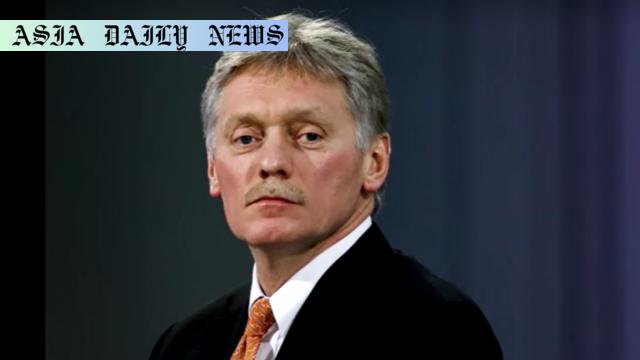Territory exchange: Russia rejects Ukraine’s proposal while survey shows rising support for mediators in peace talks.
- Territory exchange proposal by Ukraine met with rejection by Russia.
- Russian survey shows rising support for international mediators.
- China, the US, and Turkey were named as potential mediators by respondents.

Introduction: The Complexities of Territory Exchange
The ongoing conflict between Russia and Ukraine continues to face international scrutiny, with no clear resolution in sight. Recent discussions on territory exchange have further highlighted the complexities of the geopolitical landscape. On Wednesday, Dmitry Peskov, spokesperson for the Russian presidency, categorically rejected Ukrainian President Volodymyr Zelenskyy’s suggestion to exchange territories as part of a potential peace negotiation. This proposed swap delineates land occupied by Russia within Ukraine and contested areas controlled by Ukraine in western Russia.
Russia’s Firm Rejection
Peskov emphasized that Russia has not and will not entertain discussions regarding the exchange of any portion of its territory. The statement reinforced Moscow’s longstanding position of perceived sovereignty over the territories it occupies in Ukraine, despite international condemnation. Moreover, he firmly declared that Ukrainian forces operating in what Russia claims as its territory would either be destroyed or expelled.
Ukraine’s Proposal and Its Implications
In contrast, Zelenskyy signaled openness to discussing territory exchange under the condition of advancing peace. While the proposal might seem tactical, it underscores Kyiv’s desire to explore a variety of strategies to end the ongoing conflict, which has taken a devastating toll on lives and infrastructure.
Rising Public Support for Negotiation Mediators
Amid escalating hostilities, a notable development emerged from a recent survey conducted by the Levada-Center, an independent research organization in Russia. Released on Tuesday, the survey revealed increased public support for involving international mediators to facilitate peace negotiations. A staggering 67 percent of respondents favored mediation efforts, a significant 23-percent jump from November 2023. Despite the organization’s designation as a “foreign agent” by the Russian government, the findings are indicative of changing public sentiments within Russia.
Potential Mediators: China, the US, and Turkey
When asked about potential mediators, 23 percent of respondents named China as the top choice. Known for its strategic partnerships and influence in the global arena, China could be perceived as a neutral mediator with vested interests in regional stability. The United States was the second-most mentioned country, with 20 percent of respondents pointing to its global diplomatic reach and leverage. Turkey, a nation that has historically acted as a facilitator in negotiations, garnered 8 percent of the votes. The selection of these three nations reflects the geopolitical complexities of the conflict, hinting at diverse perspectives on who might help bridge the divide.
Levada-Center’s Role Amid Opposition
The Levada-Center, known for its independent and critical analyses, continues to face significant challenges from Russian authorities. The label of “foreign agent” imposes punitive measures and scrutiny, yet the organization persists in its mission to provide objective insights. Its findings on public opinion around mediation underscore growing fatigue with the protracted conflict and a desire for diplomatic interventions.
Challenges Ahead for Peace Talks
Despite the optimistic rise in support for mediators, the path to peace remains fraught with challenges. Russia’s refusal to discuss territory exchange presents a significant obstacle, while Ukraine’s willingness to negotiate with conditions raises concerns about sovereignty and geopolitical stability. The involvement of mediators could potentially redefine the dynamics, but their effectiveness remains to be seen, given the entrenched positions of both sides.
Conclusion: Hope Amid Challenges
The renewed discussion around territorial exchanges and the role of mediators reflects both the urgency and complexity of resolving the Russia-Ukraine conflict. While public opinion may be shifting in favor of third-party involvement, the unwillingness of leadership on both sides to reach compromises prolongs the humanitarian and political crisis. The international community must carefully navigate these discussions to foster sustainable and just solutions.



Commentary
The Symbolic Weight of Sovereignty
The prospect of exchanging territories as a stepping stone to peace is a contentious idea, steeped in symbolic complexities tied to sovereignty and national identity. Russia’s outright denial of such negotiations is unsurprising, considering its vested interest in claiming historical legitimacy over occupied territories. For Ukraine, on the other hand, the suggestion reflects a practical, albeit controversial, step toward ending the bloodshed. While such a proposition may appear pragmatic, it risks alienating domestic factions that view every inch of territory as sacrosanct.
The Role of Public Opinion
It is fascinating to observe the changing public attitudes within Russia, as illustrated by the Levada-Center’s survey. The significant uptick in support for mediators signals fatigue with the ongoing conflict and a pivot toward exploring alternative solutions. While public opinion may not directly influence state policy, it highlights an important undercurrent that leadership must consider, particularly if dissenting voices grow louder over time.
Geopolitical Stakes for Mediators
The naming of potential mediators such as China, the United States, and Turkey adds an intriguing layer to the discussion. Each of these nations carries its own geopolitical baggage and objectives, making their potential involvement a double-edged sword. Can they serve as neutral arbitrators, or will their own strategic interests further complicate negotiations? The answer to this question will likely determine whether mediation efforts yield tangible results or merely deepen divisions.
Finding a Path Forward
Ultimately, the discourse around territorial exchange and mediation underscores the perennial tension between idealism and realism in international relations. While the desire for peace is universal, the mechanisms to achieve it often require compromises that test the resilience of national identity and sovereignty. Both Russia and Ukraine face daunting choices in the weeks and months ahead, and the world watches with bated breath for signs of progress or further impasse.